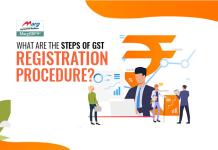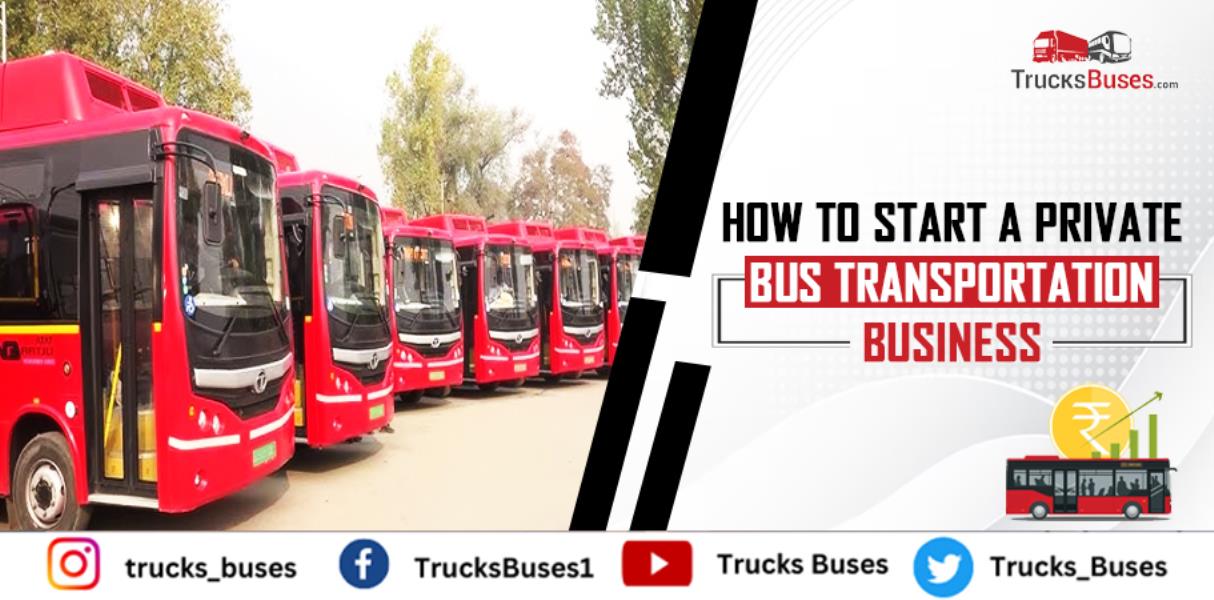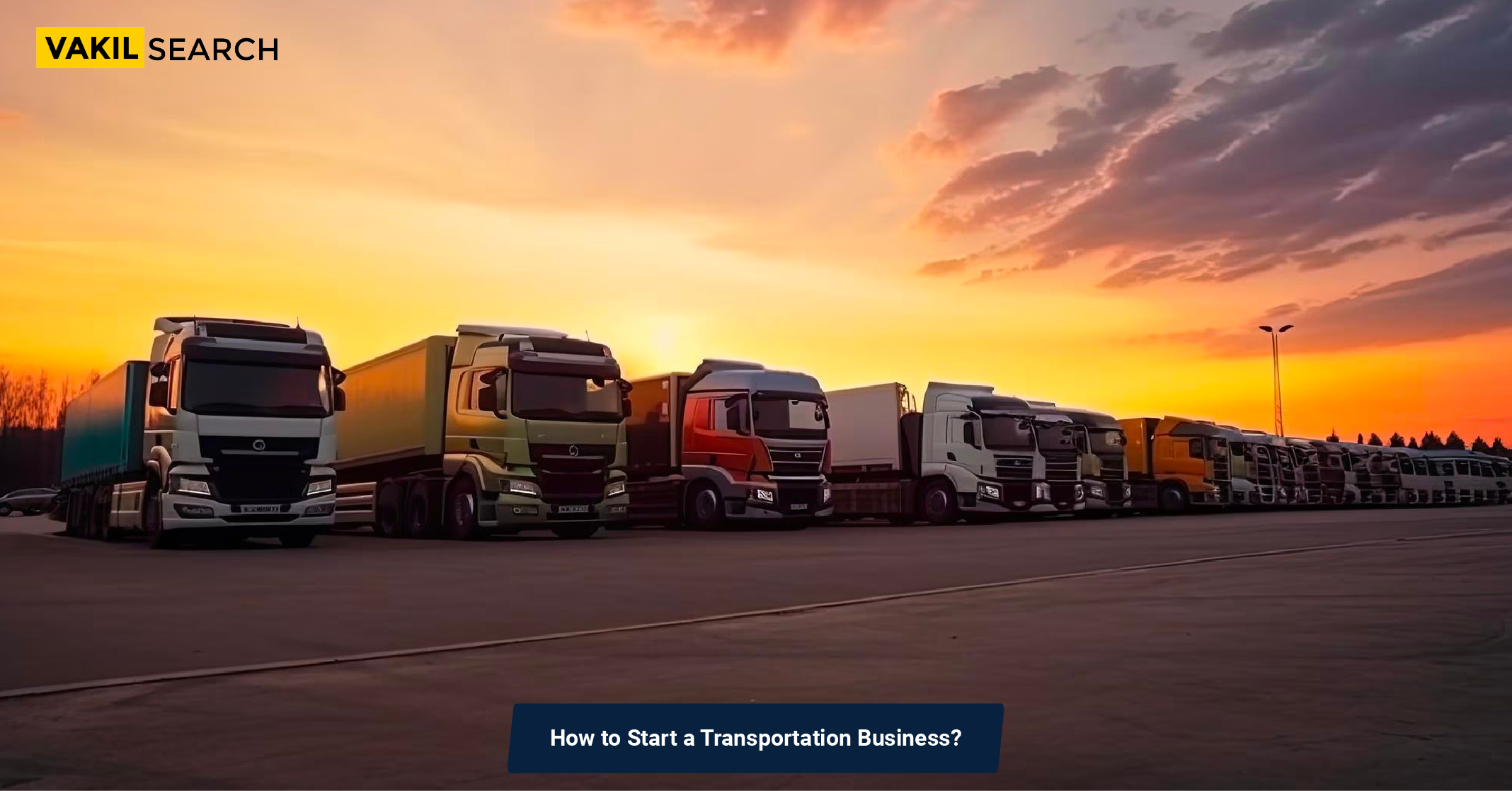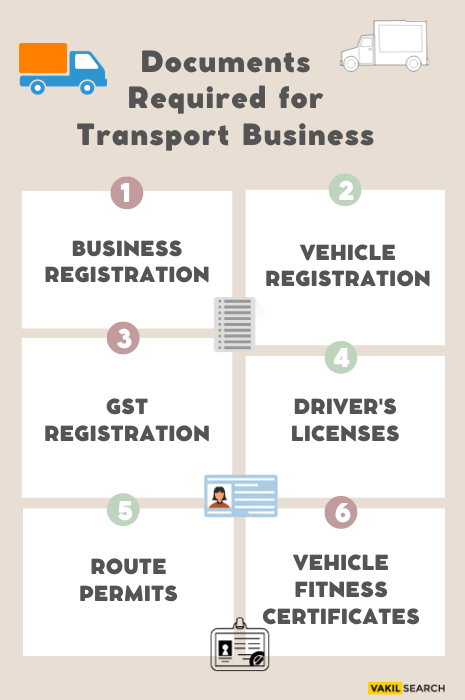How to Start a Private Bus Transportation Business in India? [Cost, Requirements]
Running a transport business in India is quite profitable. There are different types of sectors within the transportation segment, one of which is private bus transportation. Private bus transporters run buses within a city, within a state, across states, and also ferry corporate passengers from one point to the other on set routes every day.
If you wish to start a private bus transportation business in India, there is some amount of groundwork that you will need to do before you begin setting it up. We’ve simplified it for you and got you all that you need to know about setting up your transportation business.

Steps Involved in Setting Up a Private Bus Transportation Business in India
1. preliminary research.
Before setting up your transportation business in India, you must know the industry inside-out. You must understand how the industry operates, the legalities that the industry is bound by, and the rules and regulations that the business must follow. Since you are looking to set up a private bus transportation business, you need to be well aware of the rules and regulations that govern bus transportation for passengers.
2. Business plan and registration
Once you have done your preliminary research and know the basics of the industry, it is time to chalk out your business plan. This must include the kind of buses that you would like to include in your fleet, both in the short term as well as in the near future, the market segment that you wish to target, mission statement, your vision, perform competitor analysis, projected expenses, and the structure of your business. Your business plan must also include your business model –
- Whether you wish to buy your buses or lease them
- What services do you wish to provide to the customers?
- Costs involved
- What is your competitive advantage compared to your competitors?
- What routes do you want to operate on?
- What are your marketing and promotion plans?
- What challenges do you expect to face in the first 6 months, 1 year, and so on?
This business plan document is going to be your blueprint to help you through the initial few years of your private bus transportation business.
3. Vehicle buying and loan
With your business plan done, the next important thing to do is to source the vehicles - rent/lease or buy. If you wish to buy your own fleet of buses, it is always recommended to buy up to 2-3 buses initially. This will require huge capital, and so, investing in too many vehicles initially is not recommended. You can buy a used bus, as they cost less and you can purchase 2-3 vehicles in one shot with your initial investment. Based on your finances, you can also begin your loan application or borrow money from the investors, if any. Never buy just one bus and try your luck on the same.

4. Decide on a profitable route
Once you have decided your vehicles, it is now time to shortlist and finalise the routes that are the most popular. While you determine the route popularity, you must also perform some expense calculations that can help you determine which routes are also profitable.
5. Secure licenses and permits
Setting up your private bus transportation process requires you to get a whole lot of licenses, permission, and permits for the business as well as the vehicles. You will need the license required to transport passengers, a license as a transporter, RTO permissions, and other necessary permissions to be able to permit the buses to move within a state or from one state to the other.
Every business is successful due to great leadership and dedicated staff. The next obvious step to setting up your transport business is hiring the staff who will run your buses and manage the customers in-transit.
7. Marketing your bus transportation business
Once the staff is on board, the next step is to launch the business and begin marketing it. It is important that you market to your target customer. You must also list yourself on online portals like Redbus, Bitla, Abhibus, etc. With online bookings becoming the new norm, people are usually looking up tickets here. Getting yourself up on these portals and attracting your customers is the best way to ensure bookings keep coming in regularly. In fact, 90% of private bus bookings come from the above-mentioned online portals.
Another way to get bookings is by partnering with booking agents or owning a physical office where your customers can make bookings.
8. Design the best customer experience to create trust
With the primary work and setup done for your private bus transportation business, it is now time to work on creating the best customer experience for people who ride your buses. This is where you can really make the difference in being different from your competitors by giving your customers perks and benefits like online check-ins, offering complimentary water bottles, snacks, premium seats with added leg rooms, etc. A great way to gain your customer trust and retain is by having a robust customer service and care team. Most bus transport providers often overlook this.
9. Grow your business
It will take anything between 3-6 months or even a year for your private bus transport business to take off and give you substantial profits. Work consistently on marketing it to more customers, retaining the existing and new customers, and continuously making your process more and more efficient.
With consistent growth in terms of customer numbers, a high percentage of returning customers, and increasing profits, the next step is to meet demand with the supply by increasing your fleet and routes and setting off a virtuous cycle of a successful transport business.
Is a Private Bus Transportation Business in India Profitable?
Now that you are armed with all the information you need to set up your private bus transportation business in India, are you wondering how profitable this business is? Here are some factors that affect this transportation business’ profitability:
- No matter the route of your bus, there are so many bus operators and transporters that there is always a cut-throat competition on ticket pricing, and putting a tight ceiling on the prices of the tickets.
- One of the biggest hurdles of setting up this business is its initial high cost of procuring new vehicles that result in steep financing options. If you are looking to purchase luxury coaches of Volvo, Scania, and Mercedes, you might have to shell out around a crore in today’s time.
- Fluctuating Indian markets is something that we all have to live with. In a business like this, the fluctuating markets can have an impact on your newly launched private bus transportation business.
Setting up a private bus transportation business requires a lot of financial investment, time, and consistent effort. While everything may appear set from the get-go, it takes some time to gather a clientele. The business is a very capital intensive one and requires one to have enough financial backing for sailing through the initial rocky years. However, cutting through tariff restrictions, market fluctuations, and price wars, this is a great business to enter as there is always a demand in this segment.
Stay updated with new business ideas & business tips with OkCredit blogs in English, Hindi, Malayalam, Marathi & more! Download OkCredit now & get rid of your bookkeeping hassles. OkCredit is 100% Made in India.

Q. How long can the buses ply in your fleet?
Ans: If maintained well, good quality Volvo buses can ply for around 2.5-4 lakh kilometres.
Q. Which buses should you invest in Volvo or simple buses?
Ans: While simple buses are way cheaper than Volvos reducing your initial investment cost, people prefer Volvo buses for their comfort. So, it is better to invest in two Volvo buses initially that can ply to and fro on your selected route.
Q. What kind of initial investment are you looking at to set up this business?
Ans: The initial minimum investment in a private bus transportation business is anything around INR 50 lakhs to 1 crore.
Read the best of business ideas, tips for small businesses, the latest update on technology & more by OkCredit.
Recent Posts
Cable manufacturers in india [5 best manufacturers], air compressor manufacturer in india [top 11 manufacturers], pet bottle manufacturers in india [top 7 manufacturers], paint manufacturers in india [6 best manufacturers], silk saree manufacturers in india [best manufacturers], you might be interested in, foreign direct investment(fdi) 101: a complete guide, series funding [types, how it works and more], sustainable architecture ideas that can improve our lives.
A Guide to Start a Bus Transportation Business in India
Buses are the most dominant form of public transportation in India. They connect even remote villages to metropolises.
With rapidly developing road infrastructure, India has huge potential for the bus transportation business. While state-run buses form the backbone of the system, there’s also good demand for private buses.
If you’re interested in starting a bus business, this article provides some important information you need to know before launching one.
In this Post
Difference between Intra-city and Inter-city Bus services:
The bus transportation system can be divided into intra-city and inter-city bus services. You need to decide which service has demand in your region.
Intra-city (within city limits):
Intra-city buses travel shorter routes within city limits, making frequent stops and carrying many passengers. They run throughout the day according to strict schedules.
These buses are typically smaller but have high passenger capacity. They serve daily commuters and students primarily.
Permit requirements for specific routes are managed by local authorities. The market is competitive, with both public and private operators vying for ridership. Initial investment costs are lower due to the smaller size of the vehicles.
Inter-city Bus (between cities):
Inter-city buses cover longer distances with fewer stops, resulting in longer journey times. They are larger and often equipped with amenities like reclining seats and entertainment systems.
Booking systems are advanced, offering online and offline options and sometimes flexible pricing. Business travellers, tourists, and families are the main users of inter-city services.
Permits for crossing state borders are required and regulated by both state and national authorities. Competition is lower compared to intra-city services, and initial investment costs are higher due to the requirement for larger buses.
Purchasing a Bus
Choosing the right type of bus is very crucial in the bus transport business. Before choosing a bus you need to consider factors like whether are you operating within the city or between towns or rural areas.
Also, decide on the amenities you require and it should come under your budget. Make sure there are enough service centres for the brand of bus you are planning to purchase.
In general, the price range for various types of buses is as follows:
- Mini-buses: Start from ₹8 lakhs for a basic model like the Tata Magic Express used for shuttle services.
- Standard buses: Cost around ₹20-30 lakhs for popular models like Tata Starbus City or Ashok Leyland LP 410.
- Intercity coaches: Range from ₹35-55 lakhs for basic models to over ₹1 crore for luxury coaches.
- Electric buses: Are more expensive, with options like the Tata Starbus EV 4 starting from ₹2.3 crore.
Different brands and models within the same category will have varying prices based on features and specifications.
Used buses can be significantly cheaper, sometimes even half the price of new ones, but require careful inspection and may incur maintenance costs.
What are the top Bus brands in India?
Tata Motors, Ashok Leyland, Mahindra & Mahindra, Bharath Benz, Eicher Motors, Volvo Buses, and Force Motors are some of the top Bus manufacturing brands in India.
What are the widely used bus models in India?
Tata Starbus, Ashok Leyland JanBus, Eicher Pro 1200 City, and Volvo 9600 are some of the widely used bus models in India.
Investment Required for Bus Transportation Business
To start a bus transportation business in India, you may require an investment ranging from ₹10 lakhs to ₹2 crores. The investment amount depends on the type and size of the bus and the amenities you require.
The breakdown of the investment amount is as follows:
- Purchasing the bus
- Licenses and permits: This includes route permits, state permits, vehicle registration, and driver’s licenses.
- Insurance: For bus, passengers, and staff
- Business registration: Sole proprietorship/LLP/Pvt. Limited
- Spare parts and tools: Or, amenities depending on your service type
- Basic supplies: Such as uniforms, first-aid kits, fire extinguishers, and ticketing equipment
- Marketing and promotion: Intercity bus services require marketing and promotions
Also Read: Truck Business in India | Complete Details
The Operational Costs
The operational costs include Fuel Charges, Driver and employee salary, Vehicle maintenance and repair expenses, Tyre replacement, Toll charges, Insurance renewals, other permit renewals, Bus cleaning and Washing charges, and Regulatory Compliance (inspections, emissions tests, safety protocols etc).
Revenue Streams in Bus Business
The bus transportation business in India generates revenue through various channels,
- Regular Fares or Ticketing ( is the primary source).
- Some buses carry parcels alongside passengers
- Offering discounted passes for frequent travellers can attract loyal customers
- Leasing exterior and interior space on buses for advertisements
- Renting out buses for private events
Challenges in the bus transportation business:
The Indian bus business is very competitive. Standing out from the crowd and competing with big names can be tricky.
Additionally, the rise in popularity of growing popularity of cars, scooters, and ride-sharing apps adds to the competition.
On top of that, keeping the business profitable is an uphill battle. Fuel costs, repairs, insurance, and salaries keep rising.
Safety is also a major concern. From accidents to passenger security, bus companies need to invest in training, technology, and better infrastructure to keep everyone safe.
While starting a bus transportation business in India comes with its fair share of challenges, careful planning and consideration can pave the way for success.
Related Posts
How to start furniture business in india, an ultimate guide to paint shop design in india: exterior, shop layout & display, the pros and cons of starting a solar business in india, how to start a tmt bar dealership business in india, leave a comment cancel reply.
Your email address will not be published. Required fields are marked *
Save my name, email, and website in this browser for the next time I comment.

- New at Marg
- Integrated Banking
RETAIL SOFTWARES
DISTRIBUTION SOFTWARES
MANUFACTURING SOFTWARES

Udhyog Ratan Award
OTHER SOLUTIONS
ERP (CORPORATE SOLUTIONS)
MOBILE APPS
- Admin Login
The Ultimate Guide to Starting a Transport Business in India: A Step-by-Step Approach

Table of Contents
Introduction:
Starting a transport business in India can be a rewarding venture, considering the country’s growing economy and the need for efficient transportation services. However, it requires careful planning, understanding of the industry, and compliance with legal requirements. In this blog, we will provide you with a step-by-step guide on how to start a transport business in India.
Research and Planning:
- Identify your niche: Determine the type of transport business you want to establish, such as goods transportation, passenger transportation, logistics, or courier services.
- Market analysis : Research the demand for your chosen niche, identify potential competitors, and assess market trends and opportunities.
- Business plan : Create a comprehensive business plan that outlines your goals, target market, pricing strategy, operational expenses, and marketing approach.
Legal and Regulatory Compliance:
- Business registration: Register your transport business as a legal entity with the appropriate government authorities, such as the Registrar of Companies (RoC).
- Licensing and permits : Obtain the necessary licenses and permits required for your specific transport business, such as a Goods Carrier Permit (for goods transportation) or Passenger Transport Permit (for passenger transportation).
- Tax registration: Register for Goods and Services Tax (GST) and obtain a Tax Identification Number (TIN) to comply with tax regulations.
Fleet Acquisition:
- Determine your fleet size : Assess the number and types of vehicles required for your transport business based on your market research and business plan.
- Vehicle selection: Choose vehicles that align with your business requirements, considering factors such as capacity, fuel efficiency, maintenance costs, and durability.
- Financing options: Explore various financing options to purchase or lease vehicles, such as bank loans, equipment financing, or government schemes.
Infrastructure and Operations:
- Establish a base: Set up an office or operational base for your transport business, including administrative areas, parking facilities, and vehicle maintenance and repair facilities.
- Hire qualified personnel: Recruit and train skilled drivers, mechanics, and administrative staff to ensure smooth operations.
- Implement operational systems: Develop efficient processes for fleet management, maintenance schedules, dispatching, and customer service.
Insurance and Risk Management:
- Vehicle insurance : Obtain comprehensive insurance coverage for your vehicles to protect against damages, accidents, and theft.
- Liability insurance : Consider acquiring liability insurance to safeguard your business from potential legal claims or third-party damages.
- Risk assessment: Conduct a thorough risk assessment to identify potential hazards, implement safety protocols, and ensure compliance with applicable regulations.
Marketing and Promotion:
- Branding and website: Create a strong brand identity and design a professional website to showcase your services and attract customers.
- Online presence: Leverage social media platforms and online directories to increase your visibility and reach potential clients.
- Networking: Attend industry events, join transport associations, and establish partnerships with complementary businesses to expand your network and gain referrals.
Financial Management:
- Cost analysis : Conduct a detailed analysis of your operational costs, including fuel, maintenance, insurance, salaries, and administrative expenses. This will help you set appropriate pricing and ensure profitability.
- Financial projections: Prepare financial projections, including revenue forecasts, cash flow statements, and break-even analysis, to understand the financial viability of your transport business.
- Accounting and bookkeeping : Maintain accurate financial records and consider hiring an accountant or using accounting software to track income, expenses, and tax obligations.
Technology Integration:
- Fleet management software: Invest in fleet management software that provides real-time tracking, route optimization, maintenance scheduling, and performance analytics. This will streamline operations and improve efficiency.
- Online booking and tracking: Implement an online booking and tracking system to make it convenient for customers to book your services and track their shipments or travel status.
- Mobile apps: Develop a mobile app that allows customers to access your services, make bookings, receive notifications, and provide feedback. This will enhance customer experience and loyalty.
Safety and Compliance:
- Driver training and safety protocols: Ensure that your drivers are trained in defensive driving techniques, road safety, and handling emergency situations. Implement safety protocols, such as regular vehicle inspections, fatigue management, and adherence to traffic regulations.
- Compliance with environmental regulations: Stay updated with environmental regulations, especially those related to emissions and fuel efficiency. Consider using eco-friendly vehicles and adopting sustainable practices to minimize the environmental impact of your business.
Scaling and Diversification:
- Expand your services : Consider diversifying your offerings by adding complementary services, such as warehousing, freight forwarding, or last-mile delivery, to cater to a broader customer base.
- Geographic expansion: Once your transport business is well-established in one region, explore opportunities to expand to other cities or states, considering factors such as market demand, competition, and logistical feasibility.
- Partnerships and collaborations: Seek strategic partnerships with other transport companies, suppliers, or e-commerce platforms to leverage their networks and resources, enabling mutual growth and shared expertise.
Stay Updated and Adapt:
- Industry trends and technology advancements: Keep abreast of the latest trends, innovations, and regulatory changes in the transportation industry. Embrace new technologies, such as electric vehicles, autonomous driving, or data analytics, to stay competitive and meet evolving customer expectations.
- Customer feedback and satisfaction: Regularly seek feedback from your customers to understand their needs and improve your services accordingly. Aim for excellent customer service and build long-term relationships to foster customer loyalty.
By incorporating these additional points into your transport business plan, you can further strengthen your foundation and increase your chances of success in the Indian transport industry. Remember, perseverance, continuous learning, and a customer-centric approach will be key to thriving in this dynamic and ever-evolving sector.
Frequently Asked Questions (FAQs)
Q: What are the main licenses and permits required to start a transport business in India?
A: The main licenses and permits required may include business registration, Goods Carrier Permit (for goods transportation), Passenger Transport Permit (for passenger transportation), and applicable tax registrations such as GST.
Q: How do I determine the appropriate fleet size for my transport business?
A: Determining the fleet size depends on factors such as market demand, operational capacity, type of transportation, and financial resources. Conducting thorough market research and assessing your business requirements will help you make an informed decision.
Q: How can I finance the acquisition of vehicles for my transport business?
A: Financing options include bank loans, equipment financing, leasing, or exploring government schemes specific to the transportation sector. Research different financial institutions and assess their terms, interest rates, and repayment options to choose the most suitable option.
Q: What are the key factors to consider when selecting vehicles for my transport business?

Grow your business with Marg ERP! Easy GST invoices and filing.
A: Factors to consider include vehicle capacity, fuel efficiency, maintenance costs, durability, roadworthiness, and compliance with environmental regulations. Choosing reliable vehicles that align with your business requirements is crucial for long-term success.
Q: What are the legal requirements for vehicle insurance in a transport business?
A: Comprehensive vehicle insurance coverage is essential to protect your business from damages, accidents, and theft. It is mandatory to have third-party liability insurance as per the Motor Vehicles Act, and it is recommended to have comprehensive coverage as well.
Q: How can I promote my transport business and attract customers?
A: Promote your business through branding, creating a professional website, leveraging social media platforms, participating in industry events, joining transport associations, and building partnerships with complementary businesses. Providing excellent customer service and maintaining a strong online presence can help attract customers.
Q: What are the safety measures and compliance requirements for a transport business?
A: Safety measures include driver training, regular vehicle maintenance, adherence to traffic regulations, and compliance with environmental standards. You must also obtain necessary permits, licenses, and follow regulatory guidelines related to the transportation industry.
Q: How can I ensure financial management and profitability in my transport business?
A: Conduct a thorough cost analysis, prepare financial projections, maintain accurate financial records, and monitor key performance indicators. Implement sound financial management practices, such as tracking expenses, setting appropriate pricing, and seeking opportunities to improve operational efficiency.
Q: What technological tools can I integrate into my transport business for better efficiency?
A: Consider integrating fleet management software for real-time tracking, route optimization, and maintenance scheduling. Online booking and tracking systems, as well as mobile apps, can enhance customer convenience and streamline operations.
Q: How can I stay updated with industry trends and regulatory changes in the transport sector?
A: Stay connected with industry associations, subscribe to relevant publications, attend industry conferences and seminars, and actively participate in online forums. Regularly follow updates from government agencies responsible for the transportation sector to stay informed about regulatory changes.

RELATED ARTICLES MORE FROM AUTHOR

How Hospital Information Systems are Improving the Patient Experience?

The Standout Features of Accounting Software Every Business Needs

What are the Steps of GST Registration Procedure?

How Retail POS Software Can Transform Your Business?

Demystifying the Probate Process: Your Guide to Applying for Probate of a Will

Design Patents in India: Safeguarding Innovation and Aesthetics

ONDC Explained: What Is ONDC and Its Future on Marg ERP?

Which States Are Eligible for the Mera Bill Mera Adhikar GST Reward Scheme?

Mera Bill Mera Adhikar GST Reward Scheme
Leave a reply cancel reply.
Save my name, email, and website in this browser for the next time I comment.
- Terms & Conditions

How to Start a Private Bus Transportation Business
Starting a private bus transportation business can be a rewarding venture. With the right planning and execution, you can create a successful business that serves the needs of your community. Here’s a step-by-step guide to help you get started.
Is the Bus Transport Business Profitable?

The profit margin of a transport business in India may vary depending on various factors, such as the type of business, the size of the business, the market demand and the operating costs. The average profit margin in the transport industry in India ranges from 5% to 25%.
Key Factors To Know Before Starting a Bus Business
1. Market Research
Before diving into the bus transportation business, it’s crucial to understand the market. Research your local area to identify the demand for bus services. Look into existing competitors and see what they offer. Are there gaps or needs in the market that your business could fill? For example, there might be a demand for services to remote areas or specific routes not currently covered. Understanding these factors will help you create a business plan that addresses local needs.
2. Create a Business Plan
A solid business plan is essential for any new business. It should outline your goals, target market, services offered, and financial projections. Include details such as how many buses you plan to operate, the routes you’ll cover, and your pricing strategy. Also, detail your marketing plan and how you’ll attract customers. A well-thought-out business plan will not only guide your operations but also help secure financing if needed.
3. Get Required Licences and Permits
Starting a bus transportation business requires several licences and permits. You will need a commercial vehicle operator's licence, which allows you to operate buses for public use. Additionally, you may need permits specific to your location, such as local business permits and special transportation permits. You will need to acquire a commercial driving licence, obtain a permit for your vehicle, and complete registration with the local transport authority. Check with your local government and transportation authorities to ensure you have all the required documentation before starting operations.

4. How To Choose The Best Buses?
Choosing the right buses is crucial for your business. New buses offer the latest features and warranties but come at a higher cost. When choosing the best bus in India, it is important to check the reputation and reliability of the bus manufacturers. Brands like Eicher bus , Ashok Leyland bus , and Tata bus are some of the most trusted brands of the Indian market. All the buses featured are among the top options in their categories. Used buses are more affordable but may require more maintenance. Consider factors such as seating capacity, fuel efficiency and comfort features. Ensure that all buses are in good working condition and meet safety standards.
5. Hiring Of Bus Drivers
Your business will need a reliable team to operate smoothly. Start by hiring experienced drivers who have the required licences and a clean driving record. In addition to drivers, you may need maintenance staff, customer service representatives, and administrative personnel. Provide thorough training for all employees, focusing on safety procedures, customer service, and company policies. Well-trained staff will contribute to the success of your business and customer satisfaction.
6. Set Up Operations
Organize your business operations efficiently. This includes setting up a central office for administration and customer service. Develop a schedule for your bus routes and ensure that all operational details are well-organized. Implement a system for booking and managing reservations, whether it’s through a website, mobile app, or phone service. Proper scheduling and management will help you provide reliable service and meet customer expectations.
7. Market Your Business
Start by creating a brand identity, including a logo and company colours. Use various marketing channels such as social media, local advertising, and community events to promote your services. Effective marketing is key to attracting customers to your new bus transportation service. Building a strong online presence and positive reputation will help to grow your customer base.
8. Focus on Customer Service
For a successful business, provide excellent customer service for retaining customers and building a good reputation. Ensure that your buses are clean, comfortable, and punctual. Train your staff to be courteous and helpful. Address any customer complaints or issues promptly and professionally. A positive customer experience will lead to repeat business and referrals.
9. Monitor and Improve
Once your business is up and running, continuously monitor its performance. Track key metrics such as ridership numbers, revenue, and customer feedback. Use this data to identify areas for improvement and make necessary adjustments. Staying proactive and responsive to change will help you maintain a successful and growing bus transportation business.
Conclusion:
Starting a private bus transportation business involves careful planning and execution. By researching the market, creating a solid business plan, obtaining necessary permits, acquiring the right buses, and focusing on customer service, you can build a successful and profitable transportation service. Keep refining your operations and stay attentive to customer needs to ensure long-term success.
Top 5 Maintenance Tips for Buses in India - Complete Guide
Top 5 Sleeper Buses in India

8 Steps Guide to Start Your Transport Business

Table of Contents
Starting a transport business can be a good way for business owners to make money. Transport businesses help move goods and people from one place to another. They are an important part of the global economy. With the rise of e-commerce and the growing need for transportation services, the transport industry is growing with a CAGR of 8.11% and is likely to earn over 15 trillion US dollars in the coming years. But, starting a transportation business is not easy. To make your business successful and profitable, you must make a transport business plan carefully and do research. To have the best transport business in India, you must have funding and the required permits and licenses. This article is a complete guide to how to start a transport business. It covers essential tips and techniques to start and grow your transport business. So, let us dive into the eight most important steps to start your transport business.
What Does a Transporting Business Do?
Transportation connects customers and suppliers throughout the supply chain and logistics. These experts make sure that customers get goods on time. They also ensure the safe and timely delivery of the goods to the correct destination. Transportation management is a big part of supply chain management. It lets businesses use their vehicles and find vendors and routes that work for both orders coming in and orders going out. Orders or shipments can be used to plan transportation, and transfer orders are a part of the outbound scenario. Transportation is a critical part of the business. It makes moving goods easier and helps businesses meet customer needs through mass production. Without a robust transportation system, it would be impossible to do business.
Transport Business Plan to Follow in 2024
Transport businesses need to have a solid transportation business plan. This includes hiring good people, getting the right vehicles, and making a detailed financial plan. Businesses in the transportation industry can set themselves up for success in 2024 by following these steps and keeping up with transportation trends.
Step 1: Choosing a Transport Business
The first thing you must do to start a transport business is to decide what kind of enterprise you want to run. You can choose to run a freight transport business or a passenger transport business in India. However, before making a decision, you should consider what the market wants, what your competitors are doing, and what you know.
Step 2: Registration of Transport Business
The second step is to get your business registered with the right people. To run your transport business legally, you need to get proper licenses and permits. You should also consider the tax requirements in your state or country.
Step 3: Investing in Transport Vehicles
The third step is to invest in transport vehicles. You can either buy vehicles or rent them. What kind of business you want to run will determine the type of vehicle you buy or rent. For instance, if you want to run a business that moves freight, you may need to buy trucks or shipping containers. If you want to run a passenger transport business, you may need to invest in buses, taxis, or planes.
Step 4: Tracking devices for transport business
The fourth step is to put devices that can track your vehicles. The tracking devices will help you track your automobiles and ensure their smooth running. The devices will also help you keep your drivers safer and prevent theft.

List of Opportunities in the Field of Transport Business
- The movement of people and goods globally depends heavily on the transportation sector. Despite the challenges posed by COVID-19, there are still opportunities in the transportation industry.
- One opportunity is the shift towards electric vehicles. EVs are expected to usher in a generational shift in mobility. This shift presents opportunities for businesses that can provide charging infrastructure and EV maintenance services.
- Another opportunity is to update the country’s transportation system. Given that low-income communities with better access to jobs within a 15-minute commute have higher upward economic mobility, there is a business case for prioritizing equity in transportation.
- When starting a transport business, it is crucial to know about the various types of transport businesses that one can start. Some of these include auto transportation, shipping, and medical transportation. To start a transport business, owners first need to develop a transport business plan.
- The plan must cover aspects such as how to get a transport contract. It should also cover the broad guidelines for agreements done to consumer businesses.
- In the transport sector, relatively more employees are needed in managerial positions and the posts of drivers.
- Investments in transportation can influence the development and the environment while enhancing economic productivity. In the coming years, policy considerations will increasingly depend on how transportation affects where people live and where businesses are located. Companies that offer eco-friendly transportation options can take advantage of this chance.
8 Steps to Launching Your Transport Company
Starting a transport business requires careful planning and execution. Here are eight steps to launching your transport company:
Conduct Market Research
Market research is the first step in starting your own transport business. You must be aware of market demand, rival businesses, and prospective clients. Also, you should look into the rules and prerequisites in your state or nation for running a transport company.
Create a Business Plan
The second step is to create a transport business plan. Include your objectives, goals, and financial projections in your business plan. You should also include the marketing strategy, management structure, and operational strategy in your business plan.
Obtain Licenses and Permits
The third step is to obtain the necessary licenses and permits to operate your business. To legally run your transport business, you must adhere to local regulations and receive the required licenses from your state or nation.
Secure Funding
The fourth step is to secure funding for your business. You can fund your firm with your money, take loans, or find investors. The costs of running your business, such as vehicle expenses, employee wages, and insurance, should also be evaluated.
Purchase or Lease Vehicles
The fifth step is to purchase or lease vehicles for your business. You should consider the kind of vehicles you require for your company and the costs involved in buying or leasing them. The expenses related to fleet ownership for maintenance and repairs should also be considered.
Hire Employees
The sixth step is to hire employees for your business. You must take into account the training and experience of employees like drivers, mechanics, and office staff. You must also evaluate their salaries and benefits.
Develop a Marketing Plan
The seventh step is to develop a Marketing Plan for your business. Consider your company’s target market and the methods to connect with them. You should also pay close attention to the branding and advertising of your business.
Launch Your Business
The final step is to launch your business. You should have all the necessary permits and licenses, vehicles, and employees in place before launching your business. You should also consider the operational procedures and policies for your business.
Also Read: How to Start a Business: 11 Steps to Get Your Business Up and Running
Mistakes to Avoid When Starting a Transportation Business
When starting a transportation business, it’s essential to avoid common pitfalls that could hinder your success. Here are some mistakes to avoid:
1) Neglecting Market Research: Failing to conduct market research can lead to entering an oversaturated market or avoiding customer needs and preferences. Understand your target market, competitors, and industry trends before starting a business.
2) Ignoring Legal Requirements: Necessary licenses, permits, and insurance can result in legal issues and fines. Ensure compliance with local, state, and federal regulations governing transportation businesses.
3) Underestimating Costs: Underestimating financial planning and expenses can lead to budget shortfalls. Consider all startup costs, ongoing expenses, and challenges when creating a budget.
4) Poor Fleet Management: Inefficient fleet management practices, such as inadequate maintenance or improper route planning, can result in increased costs and dissatisfied customers. Implement effective strategies to optimize vehicle performance and utilization.
5) Neglecting Safety Measures: Ignoring safety measures can affect the well-being of drivers, and passengers. Prioritize safety training, and vehicle maintenance, and follow safety regulations to minimize risks and liabilities.
6) Lack of Marketing Strategy: Neglecting to invest in marketing and promotion can affect business growth. Develop a comprehensive marketing strategy that leverages various channels to reach the target audience and promote services effectively.
7) Ignoring Customer Feedback: Failing to address customer feedback and concerns can result in poor customer satisfaction. Actively listen to feedback from customers and use it to improve service and customer experience.
By avoiding these mistakes and implementing good business strategies, you can increase your chances of success in the transportation industry.
Start Earning from Transporting
Starting a transport business can be a good way to make money. But, it needs to be carefully planned and executed. Business owners must first decide what kind of business they want to open and find their niche. They should make a good business plan for transport that covers all aspects of the business . These include answering questions like how to get transport contracts and rules for agreements with consumer businesses. They should also plan their finances and make a budget for overhead costs, get the licenses and permits they need, hire talented people, buy the vehicles and equipment they need, build their brand, and market their business to get customers. Business owners should also keep up with transportation trends, such as the move towards electric vehicles, modernizing transportation systems in a way that benefits everyone, making
Innovative, low-investment ideas for the hidden entrepreneur in you! Explore our guide on Business Ideas .
Frequently Asked Questions (FAQ’s)
What are the prerequisites for initiating a start-up business in transport.
There are a few prerequisites to consider before launching a transport business. They include acquiring the required authorizations and licenses, procuring finance, selecting the appropriate transport business, buying or leasing cars, hiring staff, creating a marketing strategy, and starting your company.
What are the different kinds of businesses one can start in the transport industry?
These include courier services, trucking and logistics, taxi and limousine services, ride-sharing services, and airport shuttle services.
How profitable is the transport business?
Several things can affect a transport company’s profitability. It may be impacted by operating costs including fuel, maintenance, and insurance. Your sales must be higher than your costs to turn a profit. Profitability may also be impacted by market demand and competition. You must ensure that your company offers a unique advantage that sets you apart from your rivals. Profitability can be increased by making efficient use of resources, such as route planning and vehicle maintenance.
What is the best transport business to start?
The best transportation company to launch will depend on a variety of factors, including your interests, abilities, and expertise. You ought to pick a business that both meets your goals and is in high demand. The business’s profitability and level of competition are important factors as well. The most in-demand solutions are courier services, trucking, logistics, and ride-sharing services. Trucking and logistics are concerned with the transportation of products and cargo. Courier services handle the delivery of small items and papers.
Related other reads
- Best 40 Business Ideas for Housewives to Earn Money in 2023
- A Quick Guide to Getting FSSAI License in India
Start Online Q&A Business
To read more related articles, click here.
Got a question on this topic?
Related Articles
Start q&a business online.
- Write for Us
- Privacy Policy
- Chegg Study
- Learn a language
- Writing Support
- Expert Hiring and Payment Dashboard
- ज्ञानकोश Earn Online
- Career Guidance
- General Knowledge
- Web Stories
Chegg India does not ask for money to offer any opportunity with the company. We request you to be vigilant before sharing your personal and financial information with any third party. Beware of fraudulent activities claiming affiliation with our company and promising monetary rewards or benefits. Chegg India shall not be responsible for any losses resulting from such activities.
- Write for Us About Us
- Chegg Inc. Compliance
© 2024 Chegg Inc. All rights reserved.
How to Start a Transportation Business – The Complete Guide

Transportation businesses play a vital role in the global economy, facilitating trade and commerce between countries and regions. Know how the industry works
The transportation business involves the movement of goods or people from one location to another, and it plays a crucial role in the economy. Starting a transportation business can be a lucrative venture, but it requires careful planning, compliance with regulations, and a solid business strategy.
Table of Contents
Why Should You Start a Transport Business?
Starting a transportation business can offer several advantages:
High Demand:
Revenue potential:, diverse opportunities:, growth potential:, what are the top transportation business ideas.
Some popular transportation business ideas include:
- Freight Hauling : Starting a trucking company to transport goods locally or nationally.
- Courier and Delivery Services : Offering express delivery and courier services.
- Ridesharing : Operating a ridesharing service or taxi company.
- Limousine Service : Providing luxury transportation for special events.
- Boat or Yacht Charter : Offering boat or yacht rental services.
- Moving and Relocation : Assisting individuals and businesses with moving and relocation services.
- Ambulance Service : Providing emergency medical transportation.
- Bicycle Courier : Offering eco-friendly courier services in urban areas.
Documents Required for Transport Business in India
To start a transportation business in India, you will need several documents, including:
- Business Registration : Register your business as a sole proprietorship , partnership, or company, depending on your preference
- Vehicle Registration : Register and obtain permits for your vehicles, including commercial vehicle registration and insurance
- GST Registration : Register for GST if your annual turnover exceeds the threshold
- Driver’s Licenses : Ensure that your drivers have the necessary commercial driver’s licenses (CDLs) and permits
- Route Permits : Depending on your type of transportation, you may need route permits or inter-state permits
- Vehicle Fitness Certificates : Ensure that your vehicles meet safety and emissions standards and obtain fitness certificates.
How to Start a Transportation Business in India?

You can make PVT limited company registration for transportation business in India, follow these general steps:
- Market Research : Identify your target market, competitors, and the specific transportation niche you want to enter
- Business Plan : Create a comprehensive business plan outlining your goals, budget, and strategies
- Legal Formalities : Register your business, obtain necessary permits, and comply with taxation and regulatory requirements
- Fleet Acquisition : Acquire or lease vehicles for your transportation business
- Hire and Train Staff : Recruit and train drivers, mechanics, and support staff as needed.
- Marketing and Promotion : Develop a marketing strategy to attract clients and promote your services
- Operations : Establish efficient logistics and operational procedures
- Safety and Compliance : Ensure that your vehicles and operations comply with safety regulations
- Insurance : Obtain appropriate insurance coverage for your vehicles and business
- Launch : Launch your transportation business and start serving clients.
Creating a Transport Business Plan in 2024
Creating a transport business plan in 2023 will require you to consider the following key factors:
- The type of transport business you want to start: There are a variety of transport businesses that you could start, such as a taxi service, a trucking company, a courier service, or a bus company. The type of business you choose will depend on your interests, skills, and resources.
- Your target market: Who are you planning to serve with your transport business? Once you know your target market, you can tailor your services and marketing efforts to meet their needs.
- Your competitive landscape: Who are your competitors? What are they doing well? What could they be doing better? Understanding your competitive landscape will help you to develop a competitive advantage.
- Your financial plan: How much money will you need to start your transport business? How will you generate revenue? What are your operating costs? It is important to have a detailed financial plan in place before you launch your business.
Here Is a Step-By-Step Guide to Creating a Transport Business Plan in 2024
- Executive summary: The executive summary should provide a brief overview of your business plan, including your business concept, target market, competitive advantage, and financial projections.
- Company overview: This section should provide more detail about your business, such as its history, mission statement, and values.
- Industry analysis: This section should provide an overview of the transport industry, including its trends, challenges, and opportunities.
- Customer analysis: This section should describe your target market in detail, including their needs, wants, and demographics.
- Competitive analysis: This section should identify your competitors and analyse their strengths and weaknesses.
- Marketing plan: This section should outline your marketing strategy for attracting and retaining customers.
- Operations plan: This section should describe how you will operate your business, including your fleet of vehicles, staffing, and technology.
- Management team: This section should introduce your management team and highlight their experience and expertise.
- Financial plan: This section should include your financial projections for the first three to five years of your business.
When doing company registration for your transport business plan, it is important to be realistic and specific. Your plan should be a living document that you update regularly as your business grows and changes.
License Required to Start a Transport Business
The licenses required to start a transport business in India may include:
- Goods Carrier License : For transporting goods within or between states
- Passenger Carrier License : For passenger transport, such as buses or taxis
- National Permit : Required for interstate transport
- GST Registration : For taxation purposes
- Vehicle Fitness Certificate : To ensure vehicle safety and compliance.
Transportation Business FAQs
What are transport services in business.
Transport services in business refer to the activities involved in moving people, goods, or cargo from one location to another. These services are an essential part of supply chains and logistics, ensuring the efficient movement of products and people. Transport services can encompass various modes of transportation, including road transport (trucking), rail, air, sea, and even specialised services like courier and parcel delivery.
What is the best way to initiate your transport business plan?
Initiating a transport business plan involves several key steps:
- Market Research: Research the transportation industry, identify your target market, and understand your competitors.
- Business Concept: Determine the specific type of transportation service you want to provide, such as freight hauling, passenger transport, or specialised transport.
- Legal Requirements: Research and comply with the legal and regulatory requirements for your chosen niche and location.
- Financial Planning: Create a detailed financial plan, including startup costs, operating expenses, and revenue projections.
- Fleet Acquisition: Acquire or lease the necessary vehicles and equipment.
- Hiring and Training: Recruit and train drivers and staff.
- Marketing Strategy: Develop a marketing plan to attract clients.
- Operational Setup: Establish efficient operational procedures and safety protocols.
A well-structured business plan that considers these factors is essential for a successful start.
Is the transport business profitable?
The profitability of a transport business can vary widely based on several factors, including the type of transportation service, location, competition, operating efficiency, and market demand. Some transport niches, such as long-haul trucking, can be profitable, while others, like taxi services, may face stiff competition and lower profit margins. Careful planning, cost management, and effective marketing can contribute to the profitability of a transport business.
What documents are required for transport business in India?
Documents required for a transport business in India typically include:
- Goods Carrier License: For transporting goods within or between states..
- Passenger Carrier License: For passenger transport services like buses or taxis.
- National Permit: Required for interstate transport.
- GST Registration: For tax purposes.
- Vehicle Fitness Certificate: To ensure vehicle safety and compliance.
These are some of the essential documents, and specific requirements may vary based on the type of transport service and state regulations.
In what ways can you make money in the transport business?
There are several ways to generate revenue in the transport business, including:
- Freight Hauling: Transporting goods and cargo for clients, charging based on distance, weight, or volume
- Passenger Transport: Providing transportation services for passengers, such as buses, taxis, or ride-sharing
- Logistics and Warehousing: Offering additional services like warehousing, inventory management, and distribution
- Courier and Parcel Delivery: Delivering packages and parcels on behalf of e-commerce companies and individuals
- Specialised Transport: Providing specialised services such as refrigerated transport, hasardous materials transport, or heavy machinery transport
- Contract Services: Securing long-term contracts with businesses for their transportation needs
- Value-Added Services: Offering services like tracking, insurance, and expedited delivery for premium fees.

The Annual Returns Procedure: What You Need to Know
You might be wondering how you can get annual returns on the stock market, and the answer lies in your…

Forms Under Companies Act, 2013
The Companies Act, 2013 has its current impeccable shape after a number of improvisations to the earlier versions of the…

What Is the Difference Between Corporation and Incorporation?
Corporation and Incorporation are both business terms that refer to types of businesses with different legal structures. While incorporation is…

Maintenance of Minutes For Private Companies
Introduction There are many advantages to operating your business as a private limited company. But everything comes at a cost.…

Understanding G-Secs and How to Invest in Them for Business?
G-secs refer to government securities or, in other words, loans or capital issued by the government. The biggest advantage associated…

Startups to Continue Receiving a Tax Holiday
Businesses of all sizes and types have been having a tough year courtesy of the coronavirus pandemic. The Indian government…

How the Rupee Depreciation is Enticing NRIs in Real Estate?
The Indian currency has depreciated as much as 5.2% against the US dollar in 2022 so far. The rupee’s depreciation…
Subscribe to our newsletter blogs

IMAGES
VIDEO
COMMENTS
To start a bus transportation business in India, you may require an investment ranging from ₹10 lakhs to ₹2 crores. The investment amount depends on the type and size of the bus and the amenities you require.
Starting a transportation business in India requires meticulous planning, significant investment, and a keen understanding of the market. By following this step-by-step …
How to Start a Transport Business in India in 8 Simple Steps. Make a list of what you'll need to study, investigate, and acquire before starting a transportation company. Setting a sound foundation is critical to avoiding …
Starting a transport business in India can be a rewarding venture, considering the country’s growing economy and the need for efficient transportation services. However, it requires careful planning, understanding of …
Learn how to start a private bus transportation business. This guide covers all the essential steps like market research, business plan, etc. will help you to start a successful transport …
To have the best transport business in India, you must have funding and the required permits and licenses. This article is a complete guide to how to start a transport business. It covers essential tips and techniques to …
You can make PVT limited company registration for transportation business in India, follow these general steps: Market Research: Identify your target market, competitors, and the specific transportation niche you want to …